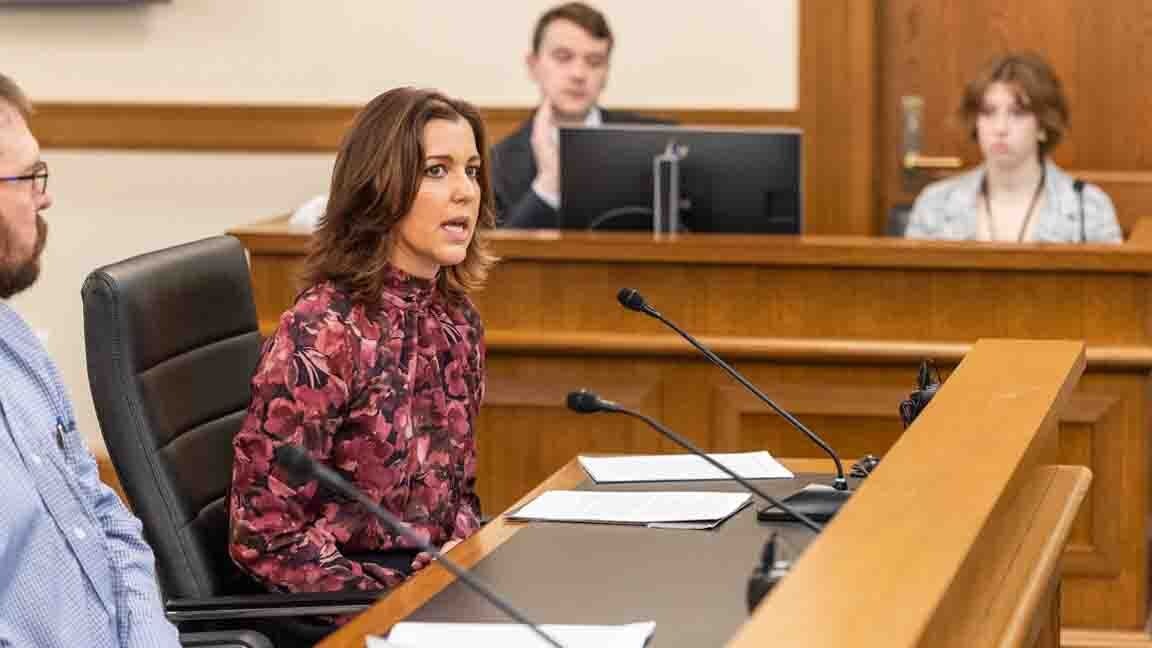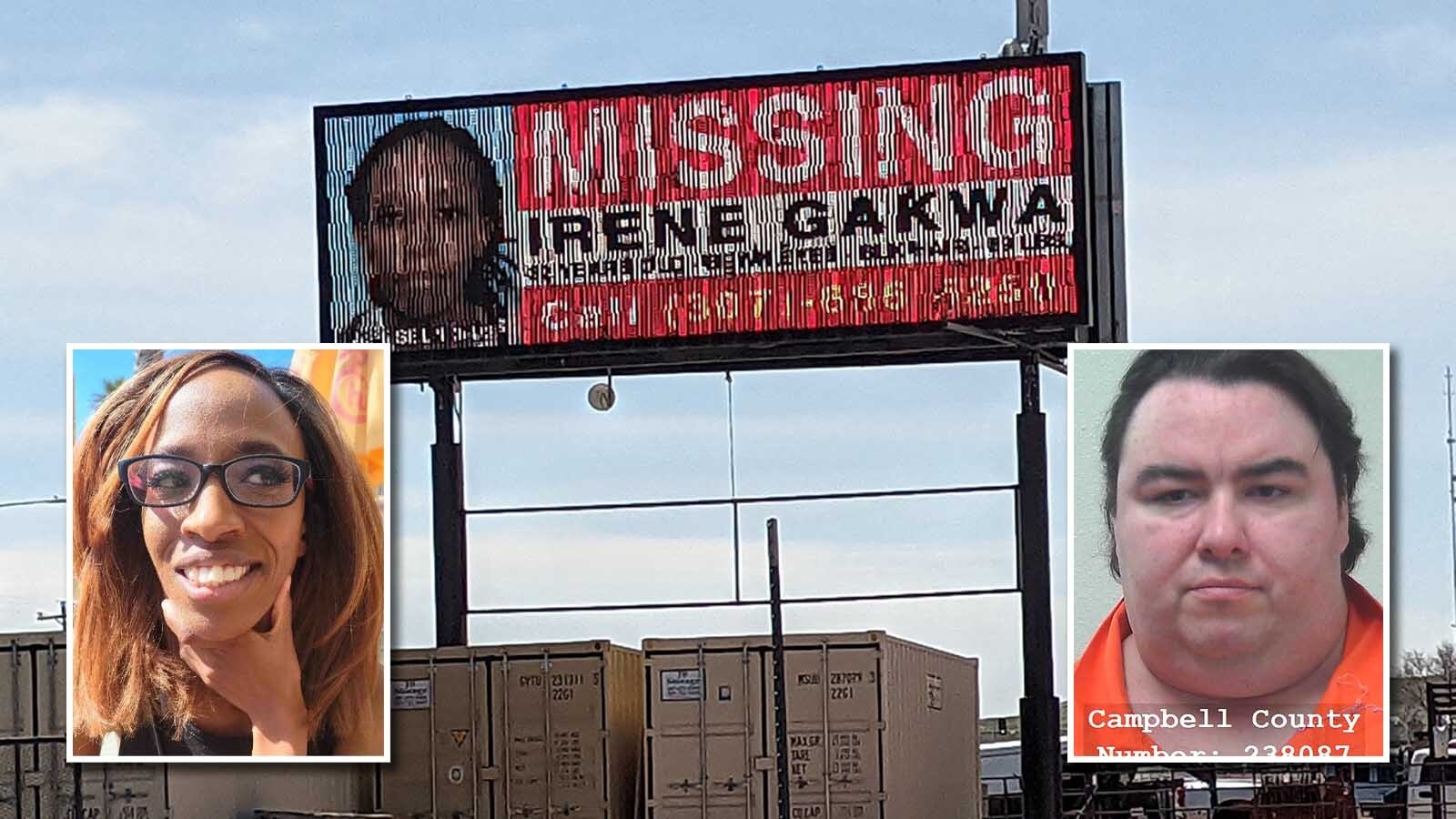Wyoming’s new top federal prosecutor asked for a delay in the case of a Gillette man accused of tampering with diesel emissions devices.
The man’s defense attorney says the delay signals a nationwide backing-off from federal criminal “delete” prosecutions under the second Trump administration.
Levi Krech faces one count of conspiracy to violate the clean air act, and one of tampering with a monitoring device, in the U.S. District Court for Wyoming. Each is a felony. Together they’re punishable by up to seven years in prison.
Krech, 31, chose to take a plea agreement in July.
The agreement and the allegations underpinning his case remain unavailable to the public.
He was scheduled to plead guilty Sept. 11.
But U.S. Attorney for Wyoming Darin Smith, via Assistant U.S. Attorney Kerry Jacobson, asked the court for more time before holding that hearing.
“The parties need additional time to research and discuss any proposed changes in the laws and regulations applicable to this case,” says a Sept. 9 motion Jacobson filed.
U.S. Magistrate Judge Scott Klosterman granted the motion and rescheduled Krech’s change of plea hearing for Oct. 16.
Krech’s defense attorney Stewart Cables, of Hassan Cables Law Firm, said he’s hoping the delay signals a chance that the case will be dismissed altogether.
“Well, we’re hoping he’s not going to have to plead guilty,” said Cables in a Tuesday phone interview with Cowboy State Daily. “We’re hoping there’s going to be a dismissal.”
He said other cases around the nation are leaning the same direction: they’re in negotiations where dismissal is a possible outcome.
“The new U.S. Attorney is taking a look at (Krech’s) case,” added Cables.
Smith’s office did not grant a request for comment by publication time.
'The Kid'
Krech’s story unfurled differently from those behind other high-profile emissions cases, and differently from his fellow Wyomingite Troy Lake, who was sent to prison at age 64 due to being a go-to delete man in the northern Colorado area.
Krech was in the criminal justice system before, for stealing tires and parts from Gillette diesel shops when he was 17 and 18 years old.
At 15 or 16, Krech said in a Monday interview, “I got involved with the wrong people who were street racing, stealing stuff.”
He was involved with the theft conspiracy in his latter teen years, and he was officially charged in February 2013, when he was 18.
Campbell County District Court Judge Thomas Rumpke thought it was a shame. “The kid” was too smart for such trouble.
“I do remember him,” Rumpke, who now works as an attorney rather than a judge, told Cowboy State Daily on Tuesday. “He’s really smart. (And I remember) saying something like, ‘Stop using how smart you are for criminal stuff, and go out and do something else.’”
Rumpke sentenced Krech to between four and nine years in prison, but with a recommendation for the Wyoming Youthful Offender, or “Boot Camp” program.
Younger defendants have a year maximum to complete the program, and they often circle back to their sentencing judge to ask for a sentencing reduction once they’ve done so.
So too did Krech, on Aug. 14, 2014. He’d completed boot camp well before his deadline.
Rumpke granted the sentence reduction, placing Krech on six years’ probation, with the threat of his original prison sentence hanging over him if he failed probation.
Rumpke made the probation term rigorous.
The judge ordered Krech to go to college, complete and intense supervised probation program; avoid alcohol and bars, stay out of trouble, avoid his co-defendants and the shop owners from whom he’d stolen parts — and finish paying restitution.
Krech did pay $36,340 in restitution, court documents say.
The victim in the case could not be reached for comment by publication time.
Krech wore an ankle monitor for a year.
One year after being placed on probation, Krech started his own diesel shop in Gillette: Unique Performance.
On Jan. 1, 2017, Krech successfully completed the diesel technology program at Gillette Community College.
“The judge loved that,” Krech recalled.
Though those were hard years, he said, he hopes it’s proof to others that a person can turn his life around.
The System Sometimes Works
Parts company Freedom Racing Engines featured Krech’s “student build” when he was 21. Krech’s projects have since been featured in MotorTrend and Diesel Army.
He recently moved Unique Performance to Sturgis, where the motorhead culture suits him well, he said in an earlier interview.
Rumpke declined to comment on the current controversy involving diesel emissions or Krech’s federal case.
But referencing Krech’s ascent to success after his time in Rumpke’s court, the former judge said “I’m very, very proud of him. It shows the system sometimes works, and he’s a great shining example of that.”
The Argument
Cables asserts that the federal Clean Air Act doesn’t give the EPA the authority to pursue criminal prosecutions for tampering with the on-board diagnostic system in a mobile machine.
Federal courts have disagreed, upholding the EPA’s use of the federal law.
U.S. District Court Judge Benjamin Settle disagreed with Cables’ stance, in a July 2024 order in the case of Tracy Coiteux.
“The (Clean Air Act’s) criminal sanctions facially apply to any person who tampers with any monitoring device required under the entire CAA — including any monitoring device required under (it),” wrote the judge. “The EPA has discretion to engage in a civil enforcement, criminal enforcement, or both for the challenged conduct under the CAA.”
Cables in his interview said that often the prosecutions target small business owners who don’t have the time or the money to take a case to trial, let alone the lengthy appeals process.
In one case that settled with a misdemeanor instead of a felony, for example, the case’s end was comfortable enough. A man isn’t as likely to challenge the way a federal agency uses a law if he’s allowed to walk away with a misdemeanor, Cables indicated.
The attorney declined to speak to the specifics of Krech’s case. He spoke of others, saying he had one client who deleted his emissions systems when they broke down because he could not afford to replace them.
Krech said that when he started in the tuning business it was treated as “perfectly legal in Wyoming,” but then federal oversight came in, “and everything turned into a mess.”
He’s been working with the federal government on his case for three and a half years, he said.
Scaling Back In These Ways
U.S. Attorney General Pam Bondi on Feb. 5 issued a notice to all U.S. Department of Justice employees, warning against pursing criminal charges where not “appropriate.”
The EPA in July announced a plan to relax rules regarding tailpipe emissions.
And the U.S. House Committee on Oversight and Government Reform discussed the exact issue Tuesday: contemplating whether the federal government should criminalize diesel delete “tunes” or take a lighter touch.
“Today’s hearing focuses on one specific issue,” began U.S. Rep. Clay Higgins, R-Louisiana, “the overly aggressive enforcement tactics, many of which are better suited for hardened criminal enforcement, used by the Biden administration to intimidate hardworking small business owners and set an example through regulatory terror against everyday American entrepreneurs.”
Most tampering cases were charged under the Biden administration, according to Cables, who represents numerous diesel shop owners.
The Clean Air Act grants the EPA criminal enforcement authority, “like it or not,” added Higgins in the meeting. “What is in question is whether the agency (has)… fairly and consistently applied its use of criminal authority.”
But This Awful Asthma
U.S. Rep. Summer Lee, D-Pennsylvania, countered in her opening statements, saying deletes are banned because “they cause real harm,” and the Trump administration has crippled the EPA from enforcing laws to keep kids safer from asthma symptoms and people safer from myriad serious conditions.
“Families living next to refineries and highways are being told their health doesn’t matter,” said Lee. “The only persecution we should be talking about is what black and brown and poor families have endured for generations: families forced to raise their kids in the shadows of smokestacks.”
Eric Schaeffer of the Environmental Integrity Project corroborated this later during a back-and-forth with Lee. He said poorer families and people of color often end up living near highways or pollution-producing plants where environmental justice and the need to enforce laws around it are more than a cliché.
Lee continued, calling the hearing absurd since to her, Trump’s is “the most lawless administration in modern history.”
She said deleted trucks release millions of pounds of pollutants into the atmosphere.
Schaeffer agreed, saying those include nitrogen oxide — fuel for smog formation — and diesel particulates, which are linked to cancer and heart disease.
‘With Guns Drawn’
The federal government for years treated tampering with emissions devices on mobile sources — like trucks — as a civil offense, not a criminal one.
Around 2020, that changed.
The U.S. Environmental Protection Agency issued a December 2020 notice saying it is a crime to tamper with emissions systems on vehicles, including the on-board diagnostic system, under the Clean Air Act.
Cables believes EPA officials started invoking criminal laws against diesel shops and their owners “in anticipation of (President Joe) Biden’s inauguration,” he said.
The first Trump administration’s EPA also executed search warrants and raids on shop owners.
On July 22, 2020, at 6 a.m., several agents secured the perimeter of Virginia shop owner Jonathan Long, due to a suspicion Long was helping customers “tune” their diesel trucks, says a judge’s order in Long’s case.
Agents from the EPA’s Criminal Investigation Division and the Naval Criminal Investigative Service converged. Two special agents approached the front door, guns drawn, and ordered Long and his wife out of their home and told Long to place his hands on his head.
Long complied, the order says.
The agents holstered their weapons, patted down both husband and wife, and confiscated their cellphones before completing a protective sweep and interviewing Long.
Because Long wasn’t given his Miranda rights before an interview from which he was clearly not free to leave, the judge scrubbed evidence from that interview from the case.
The case ended with Long pleading guilty to a misdemeanor — a significant downgrade from the six felonies he faced upon indictment.
Clair McFarland can be reached at clair@cowboystatedaily.com.






